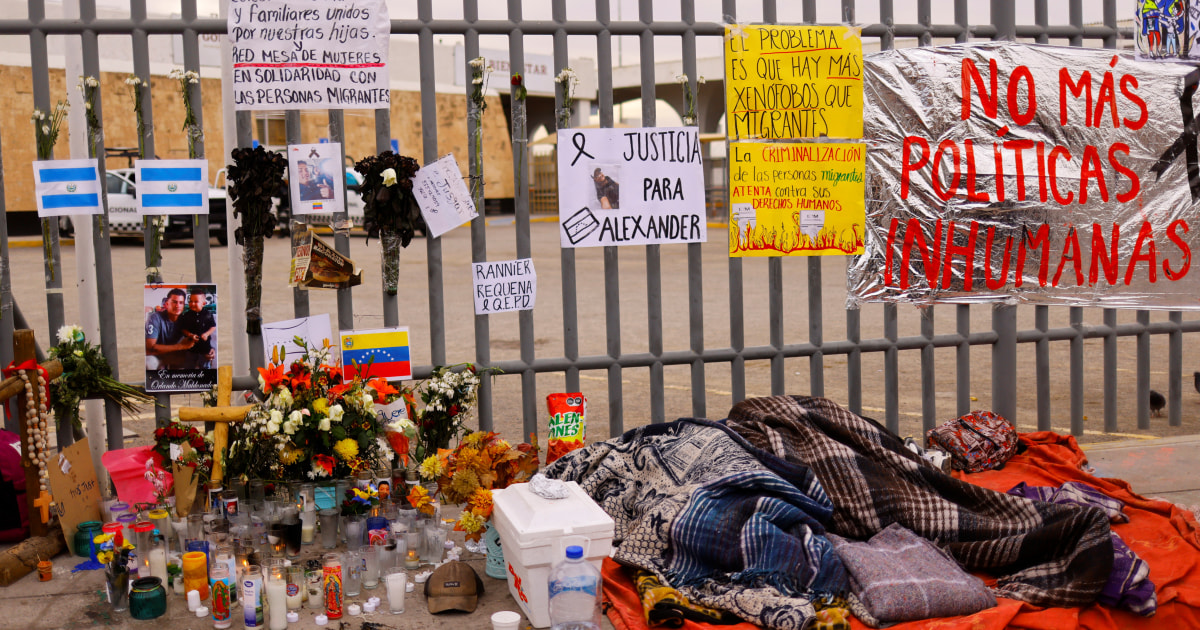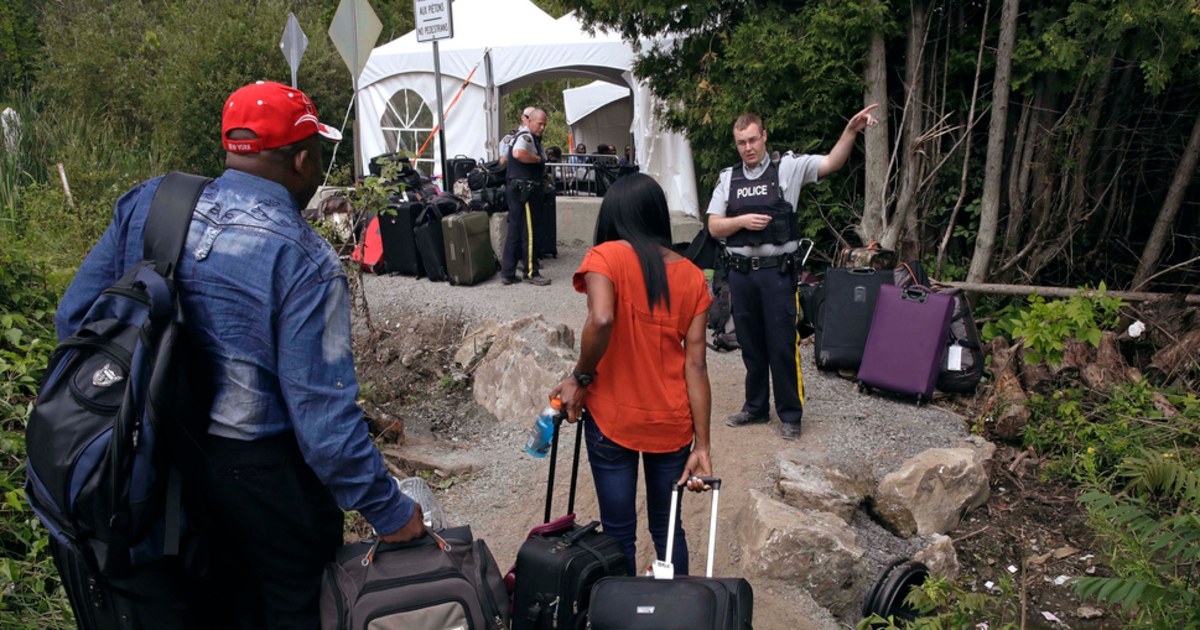With red eyes and heavy breathing, the Honduran Enemías Manuel spoke non-stop.
It described what had happened minutes before with that precision of the survivors.
He said that he was "mixed up" with other minors, migrants like him, in a cell full of older people.
All together, without personal space and much less social distancing.
When they went to dinner, all hell broke loose
.
"We only saw smoke from the elder's cell that came out, so
we broke the door because the police did not open the door
, we broke doors to get out in order to get out and free ourselves from death," said the young migrant in a video taken on March 31, after a protest at the Tenosique Migration Station, Tabasco, in southeastern Mexico.
In that incident, Héctor Barrientos, a 42-year-old migrant from Guatemala, who had requested refuge
before the Mexican authorities, died.
Although he managed to leave the facility, he was suffocated by smoke.
This case, and many others, is part of the research carried out by more than 20 civil society organizations and shelters in the
Report on the effects of the COVID-19 pandemic on migrants and refugees
.
Mexico passes a law that prohibits migrant children from being taken to detention centers
Sept.
30, 202000: 18
[ICE begins to implement a new policy of rapid deportations of migrants with less than two years in the US]
"What has been noticed by the Mexican authorities has been carelessness and irresponsibility to
protect the right to health of migrants and refugees,
" said Ana Lorena Delgadillo Pérez, director of the Foundation for Justice and the State Democratic of Right, in a press conference.
The document denounces that, from January to August, the Mexican immigration authorities detained 50,000 people
.
Although it is a lower figure than the 141,844 registered last year during the same period, experts warn that it is very worrying due to the health crisis triggered by COVID-19.
Experts indicated that some 11,000 women and 7,442 minors have been detained.
The report mentions that, at the beginning of the pandemic, there were more than 60,000 people under the Stay in Mexico program (officially, Migrant Protection Protocols), an initiative that forces asylum seekers who file their request for protection in the United States to wait the resolution of their cases in Mexican territory.
[A respite, but temporary: undocumented immigrants are skeptical of Biden's promise to freeze deportations in his first 100 days]
Victims of COVID-19
According to official figures,
until October 11, 541 cases and 33 deaths from coronavirus had been registered among migrants in Mexico.
The most affected regions were Mexico City (143 cases), Nuevo León (57) and Chihuahua (42).
The most important comorbidities detected were hypertension and obesity.
However, these data are general, the percentage of people confined in government centers who have been tested for the coronavirus is not specified.
"It is important to think that this underreporting is consistent, or may even be greater, than the underreporting at the national level
,
"
says Ana Saiz, director of the organization Sin Fronteras who also participated in the report, "but the reports requested by the judges do not they have received a clear response in terms of figures and compliance with the recommendations ”.
Riot in shelter for immigrants in Mexico for fear of contagion of COVID-19
April 1, 202002: 02
Based on dozens of interviews with migrants, shelter personnel, and experts, the research concludes that the country's migration stations "
are unsafe spaces that contribute to the spread of the virus
among the population held there," especially because conditions such as overcrowding that is registered in many of these spaces "prevent social distancing, adequate hygiene and other preventive and medical care practices."
The Mexican authorities have affirmed that in the 59 immigration stations and stays managed by the National Institute of Migration "
there is no overcrowding and there are the necessary inputs
to adequately serve foreigners."
However, there are multiple complaints in this regard and the Tenosique incident, as well as protests and riots registered in facilities in Tapachula, Chiapas;
Villahermosa tabasco;
Hermosillo, Sonora and Piedras Negras, Coahuila, are considered as a sign of the disagreement and the danger that migrants run in these state spaces.
The precarious conditions in the official migrant facilities had already been denounced in a report by the National Human Rights Commission in 2019, but specialists say that the current crisis caused by the pandemic has worsened that situation.
According to the most recent official figures, Mexico has registered 829,396 infections and more than 84,898 deaths from coronavirus.
Strong military operation in Guatemala stops the migrant caravan that had left Honduras
Oct. 6, 202000: 29
Problems in medical care and diet
The report affirms that, before the coronavirus crisis,
only 40% of immigration stations had medical personnel
and highlights that only in the Saltillo facilities, assistance services are provided 24 hours a day.
“We have seen that there are no frequent temperature checks, and there is still a lot of overcrowding in the temporary rooms.
The supply of soap is very limited, there is no water to drink and a mask is missing
, ”says Alejandra Macías, director of Asylum Access Mexico who has made several visits to state facilities.
In addition, the associations involved in the investigation explain that, in most cases, migrant shelters do not receive help from the Mexican Government, so these institutions are not prepared to attend to the flow of people who constantly transit through the various regions during this pandemic season.
That is why they do not have the necessary supplies of personal protective equipment such as face masks, gloves, masks
or substances to disinfect the spaces where they house migrants.
In order to meet their food needs, they have had to resort to donations from other associations and establish alliances with agricultural producers and other organizations.
However, experts say that does not guarantee that migrants and refugees receive a balanced diet that allows them, among other things, to stay in good health in the context of the COVID-19 pandemic.
Delays and inefficiency
The organizations that carried out this investigation have promoted eight appeals for protection in six cities of the country in order to improve the situation of people held in state centers and, despite the receptivity of some instances, they consider that the “internal mechanisms to guarantee the rights of migrants subject to detention are not efficient ”.
In the month of June alone, Asylum Access Mexico
filed 71 complaints on behalf of 113 people in the city of Tijuana due to the absence of responses
on applications for recognition of refugee status.
The constant delays in the processing of the legal requests of these people are another element that affects their stay in the country.
"They leave their countries because they suffer violence, persecution and their lives are at risk," concludes Macías, "people who require international protection have the right not to be penalized for irregular entry to Mexico."




/cloudfront-eu-central-1.images.arcpublishing.com/prisa/CQSZWCMFFEISWLLJKA76I3TGKA.jpg)




